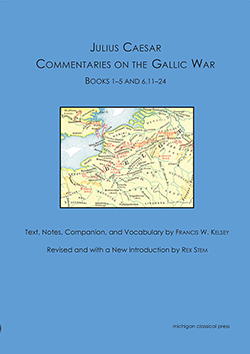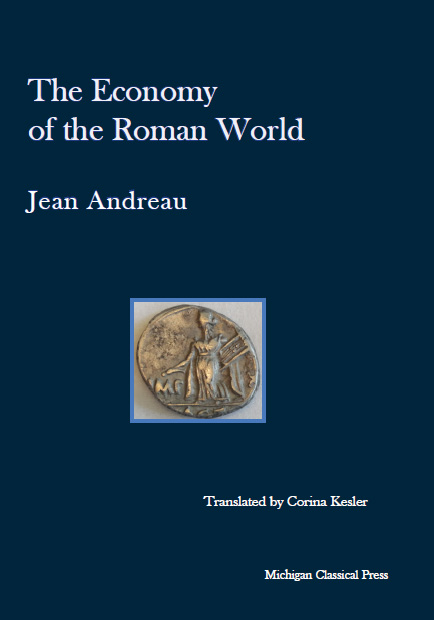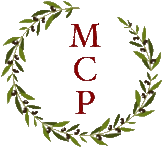Michigan Classical Press is a peer-reviewed, independent publisher

In the Hellenistic period of Greek history, communities often offered honors and titles to representatives of certain dynasties. Modeled on the earlier civic practice of creating a cult for important mythological or divine figures, the more modern ruler cult signified which figures were important to a city and its region, and represented the city’s appreciation in return for favors or military services offered. Divine Honors for Mortal Men in Greek Cities: The Early Cases presents Christian Habicht’s argument for the handling of these ruler cults in mainland Greece and the islands, relying upon contemporary testimony, down to 240 BCE. John Noël Dillon’s faithful yet inviting translation of the 1970 German edition presents the author’s updated case studies based on inscriptional discoveries since that time. Divine Honors also includes updated supplemental material encompassing additional bibliography, and detailed subject and source indices.
Christian Habicht is Professor Emeritus, School of Historical Studies, Institute for Advanced Study. He is the author of some 28 books and has received the Lifetime Achievement Award from the American Society of Greek and Latin Epigraphy.
John Noël Dillon is the author of The Justice of Constantine: Law, Communication, and Control (University of Michigan Press), and has taught at the universities of Heidelberg, Exeter, and Peking.
ISBN-13 9780979971396; xvi + 240 pp, $67.50 (cloth)

Born about 200 BC in Greece to a politically prominent family, Polybius had his own political career cut short when he was deported to Rome as a hostage. During his exile, he commenced the composition of his Histories, with the original goal of examining Rome's rise to supremacy during the years from 220 to 168 BC; later he would extend his investigation down to the aftermath of the Third Punic and Achaean wars, which ended in 146 BC.
Of the original forty books of the Histories, today only the first five survive essentially intact, with most of the remaining books represented by fragments of various lengths. In this volume, David D. Phillips presents a commentary on Polybius' first book. The volume includes the definitive text by Theodor Büttner-Wobst, together with detailed commentary on points of linguistic and historical interest, and an introduction to Polybius' life, the Histories (with special attention to book 1), and Polybian language, style, and tone.
David D. Phillips is Professor of History, University of California, Los Angeles. He is the author of The Laws of Ancient Athens (University of Michigan Press, 2013), Avengers of Blood: Homicide in Athenian Law and Custom from Draco to Demosthenes (Franz Steiner Verlag, 2008), and Athenian Political Oratory: 16 Key Speeches (Routledge, 2004).
ISBN 978-0-9799713-7-2; 6x9; 269 pp.; $65 (cloth)

Rex Stem's edition of Francis W. Kelsey's volume offers the intermediate/advanced Latin student everything he or she needs to read Caesar’s Gallic War: the complete Latin text of Books 1-5 and 6.11-24, a thorough grammatical commentary, a full Latin-English vocabulary, an internal Latin grammar cross-referenced to the usage of Caesar, and twelve color maps illustrating Caesar’s campaigns and battles.
No other edition provides such completeness or such depth in helping students to read Caesar’s Latin with proficiency and confidence.
Francis W. Kelsey was Professor of Latin at the University of Michigan from 1889 until his death in 1927. His popular school commentary on Caesar’s Gallic War appeared in twenty-one editions in his lifetime. The expanded edition revised and reprinted here first appeared in 1918.
Rex Stem is Associate Professor of Classics at the University of California, Davis, where he teaches Roman historians and Roman political thought. He is the author of The Political Biographies of Cornelius Nepos.
ISBN 978-0-9799713-8-9; 7x10 inches, ix + 352 pp., 12 color maps, 2 plates, $22.50 (paper)

The Economy of the Roman World examines the economic history of Rome in the Republican and Imperial periods. It considers evidence from archaeological and literary sources, and it offers an updated and modern economic analysis after examining popular economic theories of previous years, including but not limited to those of M.I. Finley and M.I. Rostovtzeff.
Jean Andreau offers translations of relevant ancient economic and literary texts, and he considers what these passages show us about farming and agriculture, manufacturing, shipping, and particularly the role of slaves in the Roman economy.
This first edition in English, translated by Corina Kesler, offers an updated bibliography, with attention to works more easily located in an Anglophone context.
Jean Andreau's comprehensive and synthetic study of the Roman economy has new ideas and new arguments that will interest scholars, while his clear method of presentation will be useful in a classroom setting and for those new to ancient economic study.
Jean Andreau is Director d'études, L'École des Hautes Études en Sciences Sociales (EHESS), Paris.
ISBN 978-0-9799713-5-8; 6x9; 171 pp., 2 maps; $50.00 (cloth)


